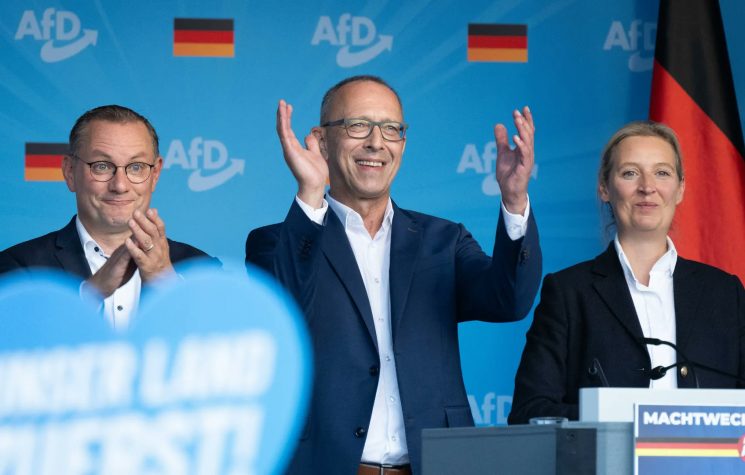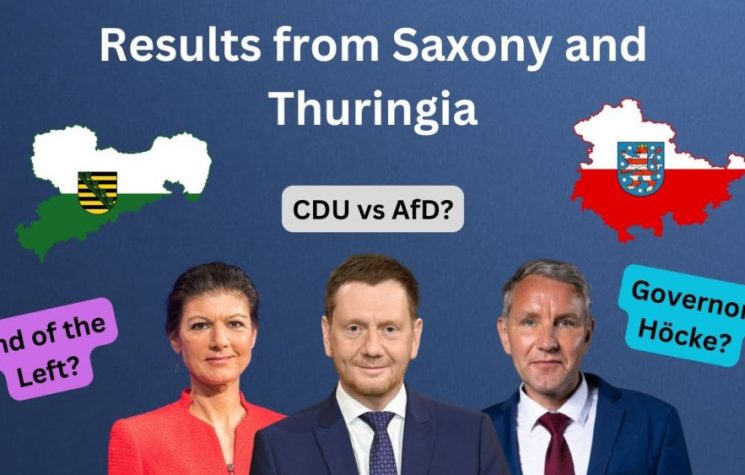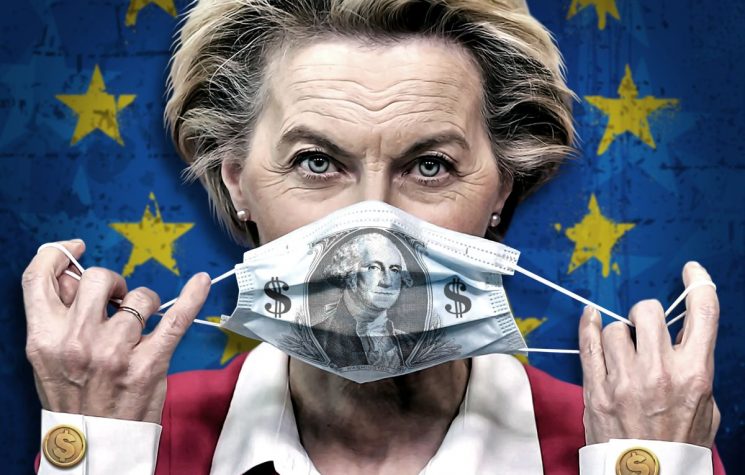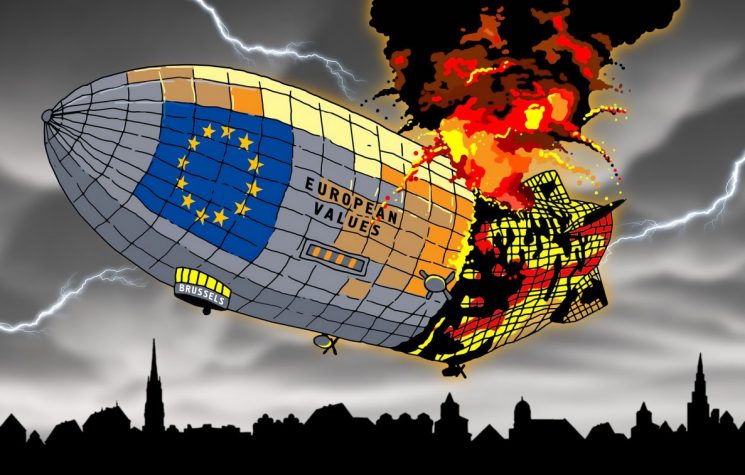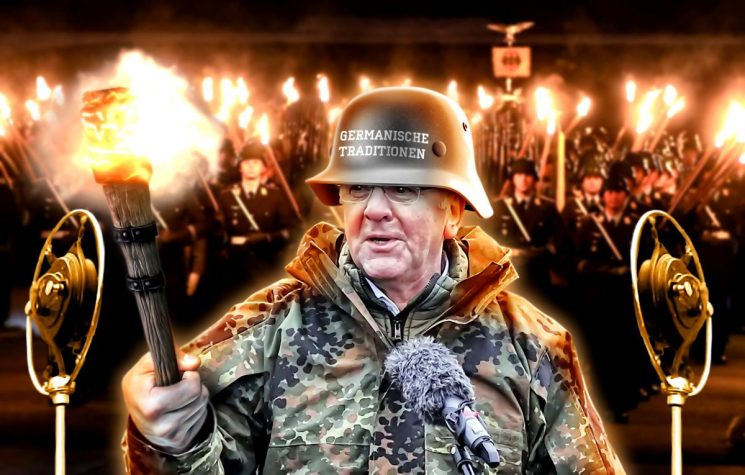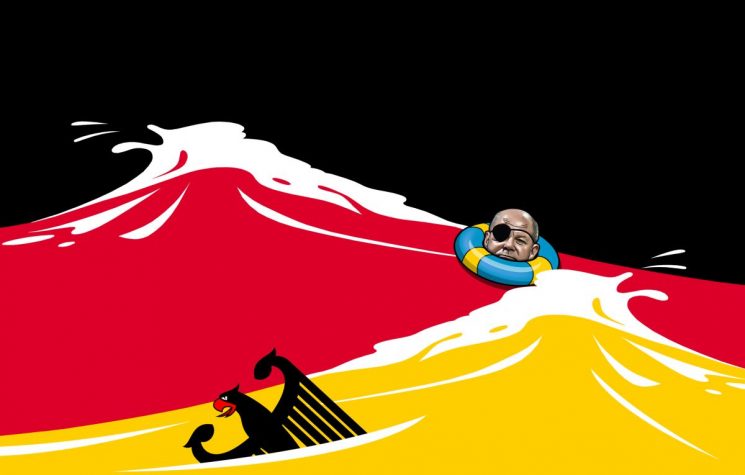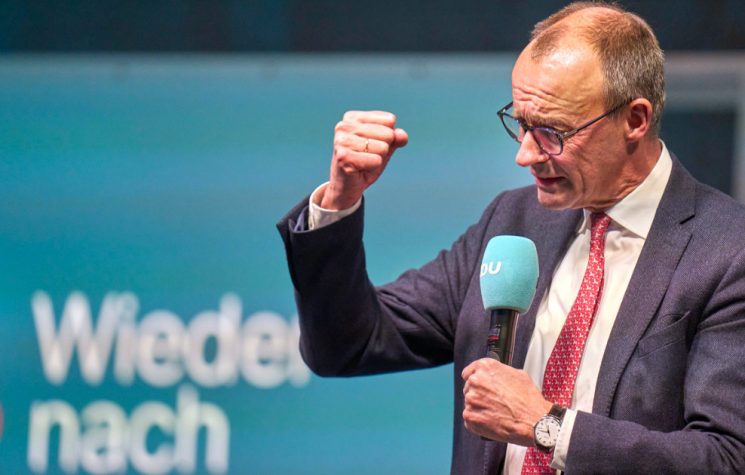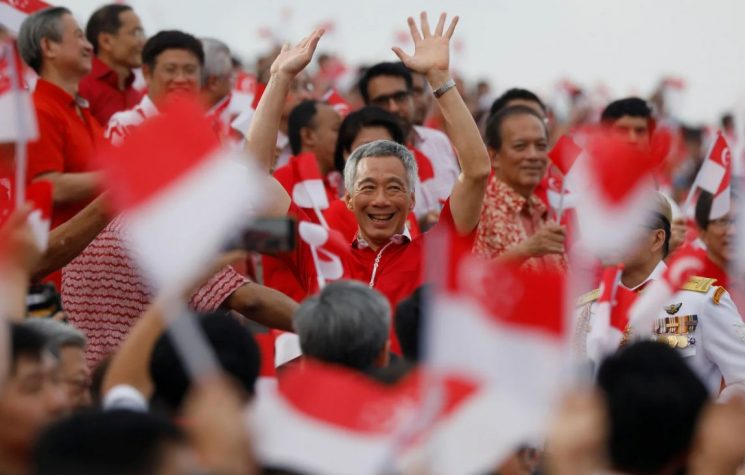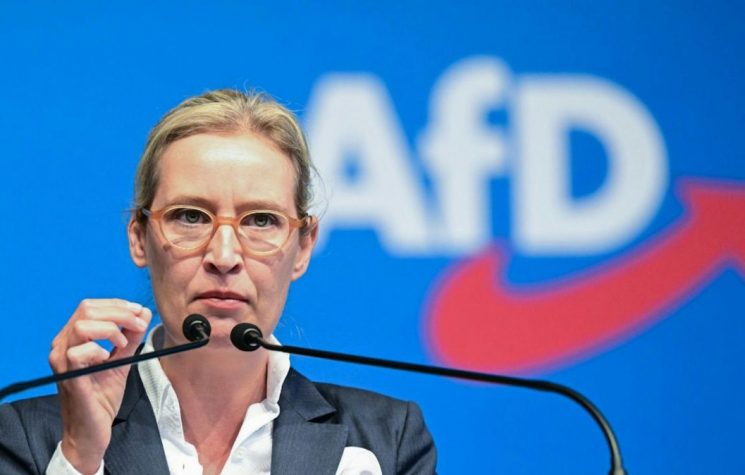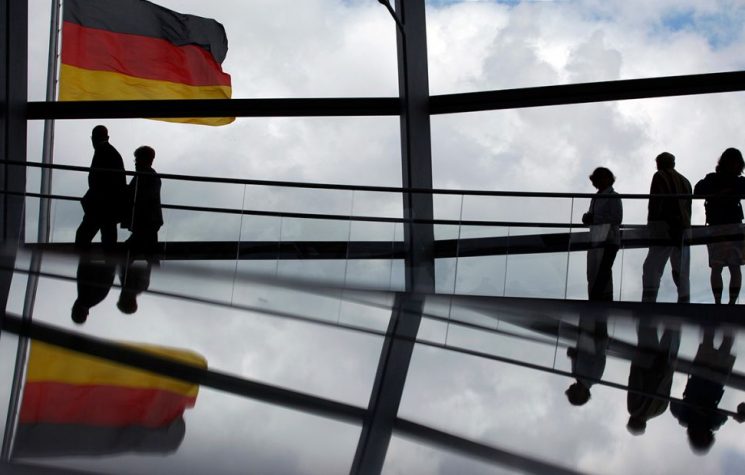Whether the coalition government last that long is a question many Germans are anxiously pondering today.
Contact us: info@strategic-culture.su
The German residents of Saxony and Thuringia awoke on Monday to a radical new political landscape as the Alternative for Germany, or Alternative für Deutschland (AfD), received more than double as many votes as the three parties which make up the federal coalition government — the center-left Social Democrats (SPD), environmentalist Greens and neoliberal Free Democrats (FDP) — combined.
This marks the first in any German state since Nazi rule.
The results represent a major setback to Chancellor Olaf Scholz’s struggling coalition government and demonstrate the increasing breakup of the political landscape and surge in popularity of anti-establishment parties across the continent.
Scholz labelled the losses for his government “bitter” and called upon mainstream parties to build governments without “right-wing extremists”.
The AfD, which, as an “extremist” group, falls under the official surveillance of the German domestic intelligence agency, was founded in 2013 as an offshoot of the CDU. It advertises itself as a right-wing movement that is critical of the European Union’s policies but supportive of German membership. Since its founding, the party has moved further to the political right and shifted its attention to immigration and Islam.
The party is most powerful in the formerly communist east Germany, which is less wealthy than the country’s west.
Björn Höcke, 52, the leader of Thuringia, has been convicted of knowingly using a Nazi slogan at political events, a conviction he is appealing. A court in the eastern city of Halle fined the history teacher turned politician for using the prohibited phrase “Everything for Germany”, or “Alles für Deutschland” in German. The slogan was etched on weapons used by Nazi paramilitary officers. Germany has harsh laws against the use of phrases and symbols linked to the Nazi party.
In the last nationwide election, for the European Parliament in June, the AfD attracted 16 percent of the vote. In other words, not exactly a nationwide nationalist takeover. Moreover, with just over 2 million people out of a national population of more than 80 million, Thuringia ranks as one of the smallest of Germany’s 16 states. At the same time, Saxony’s population stands at just 4 million.
Nevertheless, it is rather astonishing, and worrisome, that about one in three voters in these two states cast their vote for a party that the states’ own intelligence agencies have declared to be ‘extremist’.
Factors that have led to support for the AfD in eastern Germany include deep dissatisfaction with the national government, anti-immigration sentiment and opposition to any further German military aid for Ukraine. And despite the government’s rapid reaction to the deadly knife attack in Solingen, in western Germany, shortly before the elections failed to result in a change of opinion. Four out of five German voters have expressed discontent with the work of the federal government, a sentiment that has lasted a long time.
The AfD rightly views itself as having established a deep support base. The state elections brought “historic” success for their party, AfD co-leader Alice Weidel said on Sunday, calling for the federal government to stand down.
“It is also a punishment for the federal government, it is a requiem for this coalition,” she said. “The government in Berlin should ask itself if it can even continue to govern. This question of fresh elections should be posed at least following the [upcoming] election in Brandenburg, because things cannot carry on like this.”
Now the government of Olaf Scholz is attempting to recalibrate its positions, moving further to the right to counter the AfD’s respectable gains. Looking down the road to the immigration debate during the electoral campaigns, the federal government last week announced harsher migration and security policies, and made an unexpected move to deport 28 asylum-seekers who had committed criminal offenses to Afghanistan.
Now, all eyes are now focused on the eastern German state of Brandenburg, where elections are scheduled for September 22. The coalition of the SPD, Greens and FDP are nervously anticipating this vote as the German population is increasingly demanding new blood in the halls of power. If early nationwide elections were to be held today, current polling shows they would no longer get a majority.
The victors would be their competitors the AfD and the Conservative Union of the Christian Democrats (CDU) and their Bavarian counterparts, the Christian Social Union (CSU). The Union, which comprises the largest opposition bloc in the Bundestag, has long called for the government to step down.
Therefore, the SPD will be campaigning extra hard leading up to election day, because the vote will be crucial for them. The party has led the government in Brandenburg since 1990. “I expect that everyone will make even more of an effort than ever before,” said SPD co-leader Lars Klingbeil on Sunday evening in Berlin. The party needed to work together to win back votes, he said. “Everyone now needs to play their part so that things improve.”
In the event that Brandenburg’s state premier of 11 years, Dietmar Woidke, fails to be reelected, this could set in motion some serious power moves in the country. There is even the possibility that Defense Minister Boris Pistorius, who polls higher than Scholz among Germans, could become the chancellor candidate for the federal election in September 2025.
Will the coalition government last that long? That’s a question many Germans are anxiously pondering today amid the rise of far-right ideology, which is beginning to reverberate across the country. Whether that will turn into a political earthquake remains to be seen.








